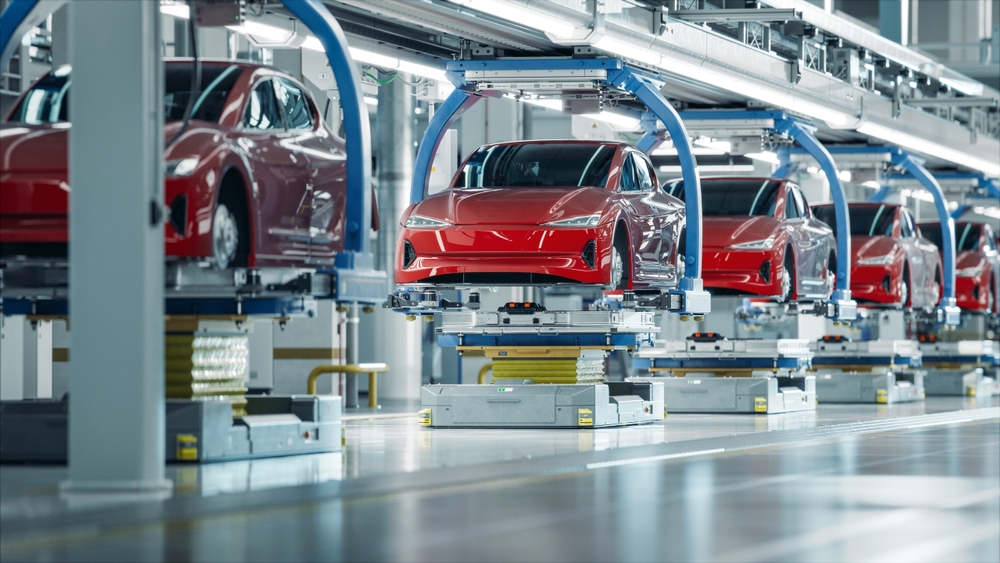Unlocking New Market Opportunities in Food Packaging Sector
Innovation in the United Kingdom’s food packaging sector is opening new paths for sustainable production and efficiency. From recyclable materials to advanced automation, the industry continues to evolve, shaping how products are packed and delivered. Explore how these changes influence employment and modern food supply systems.

The food packaging sector represents a dynamic and essential component of the UK’s manufacturing landscape, where innovation meets necessity. As consumer preferences shift towards sustainability and convenience, businesses are reimagining their approaches to packaging solutions, creating unprecedented opportunities for growth and development.
What Are Food Packaging Jobs in the United Kingdom
The employment landscape within the food packaging industry encompasses diverse roles spanning manufacturing, quality control, research and development, and logistics management. Positions range from machine operators and production supervisors to packaging engineers and sustainability specialists. These roles support the industry’s mission to deliver safe, efficient, and environmentally responsible packaging solutions across various food categories.
Modern food packaging facilities require skilled professionals who understand both traditional manufacturing processes and emerging technologies. Workers contribute to maintaining food safety standards, optimising production efficiency, and implementing innovative packaging designs that extend shelf life while reducing environmental impact.
Understanding Food Packaging Technologies and Innovations
Contemporary food packaging involves sophisticated materials science and engineering principles. Advanced barrier films, modified atmosphere packaging, and intelligent packaging systems represent significant technological developments reshaping the industry. These innovations enable extended product freshness, reduced food waste, and enhanced consumer convenience.
Smart packaging technologies incorporate sensors and indicators that monitor product quality, temperature variations, and freshness levels. Such developments create new market segments and require specialised knowledge in electronics integration, materials engineering, and quality assurance protocols.
Food Packaging Company Operations in London
London serves as a hub for numerous food packaging enterprises, from established multinational corporations to innovative startups developing cutting-edge solutions. These companies focus on various market segments, including fresh produce packaging, ready meal containers, and sustainable packaging alternatives for retail chains and food service providers.
The capital’s strategic location facilitates access to European markets while supporting domestic food manufacturers and retailers. Companies operating in London benefit from proximity to research institutions, regulatory bodies, and a diverse talent pool with expertise in packaging design, materials science, and supply chain management.
Essential Food Packaging Equipment and Machinery
Modern food packaging operations rely on sophisticated equipment designed for efficiency, precision, and hygiene compliance. Primary machinery includes form-fill-seal machines, vacuum packaging systems, and automated labelling equipment. These systems ensure consistent product presentation while maintaining strict food safety standards.
Advanced packaging lines incorporate robotics, vision inspection systems, and integrated quality control mechanisms. Such equipment enables high-volume production while minimising contamination risks and ensuring packaging integrity throughout the distribution process.
Market Opportunities and Industry Growth Drivers
The food packaging sector benefits from several growth catalysts, including increasing demand for convenience foods, e-commerce expansion, and regulatory requirements for sustainable packaging materials. Consumer awareness regarding environmental impact drives innovation in biodegradable materials and recyclable packaging designs.
Emerging market opportunities include plant-based packaging materials, reduced plastic alternatives, and packaging solutions optimised for online food delivery services. These trends create demand for research and development capabilities, manufacturing expertise, and supply chain innovation.
Sustainability and Environmental Considerations
Environmental consciousness significantly influences food packaging development, with companies investing in renewable materials, reduced packaging volumes, and circular economy principles. Biodegradable films, compostable containers, and recycled content integration represent key focus areas for sustainable packaging innovation.
Regulatory frameworks increasingly emphasise packaging waste reduction and recyclability requirements. Companies adapting to these standards position themselves advantageously in markets where environmental compliance becomes mandatory rather than optional.
The food packaging industry continues adapting to evolving consumer expectations, technological capabilities, and environmental responsibilities. Success in this sector requires understanding complex interactions between materials science, manufacturing efficiency, regulatory compliance, and market demands. As sustainability becomes increasingly important, companies embracing innovative approaches to packaging design and production processes will likely discover the most significant opportunities for growth and market expansion.




